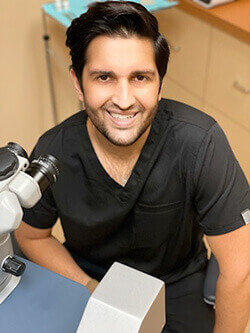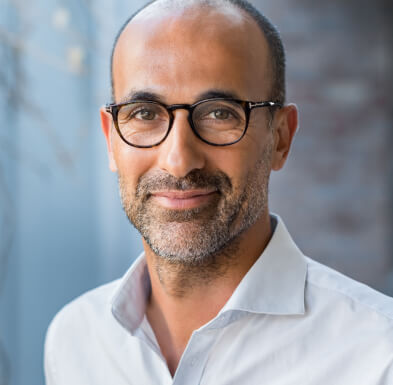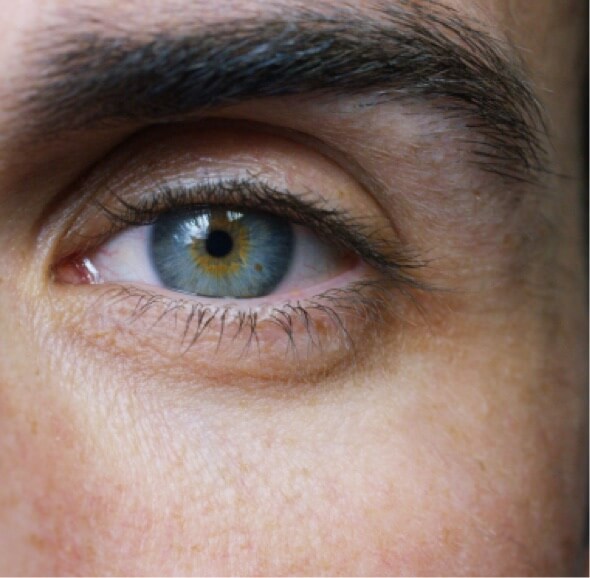Home / LASIK & PRK / Frequently Asked Questions on LASIK
Frequently Asked Questions on LASIK
It is very normal that you would have questions regarding LASIK eye surgery. After all, you’ve only got two eyes!
The quality of our vision affects our lifestyle and even our relationship. Hence, you should take the time to learn about any surgery you might undergo and more importantly, choose the best eye surgeon for your needs.
We have listed some frequently asked questions about LASIK laser vision correction below. If you have additional questions please make sure to contact us directly using this website.
Consult with one of the Top LASIK surgeons in New Jersey
Entrust your eyes to one of top LASIK surgeons in New Jersey who has a proven track record and is equipped with the latest LASIK technology, for better surgery outcomes.
There is generally no pain with LASIK eye surgery. Most patients say it is far less painful than a cleaning at the dentist office. However, as with all other surgeries, you may feel a slight amount of pain and discomfort for a short time following surgery that will decrease over the first few post-operative days. In very rare instances, however, these may persist.
LASIK has been performed on millions of patients in the United States in the past 20 plus years, and the overall rate of severe complications is extremelylow. LASIK was first approved for use by the FDA in 1998 and each year, approximately 700,000 Americans have the procedure and the vast majority of patients are happy with their results.
Below are some LASIK risks and possible complications. In most cases, these side effects disappear within three to six months after surgery as your eye adjusts to LASIK refractive surgery.
- Dry Eye
- Glare, halos or starbursts around lights
- Hazy or blurry vision• Pain or discomfort
- Poor night vision• Reduced sharpness of vision
- Sensitivity to light
- Small pink or red patches on the white of the eye
More uncommon, very rare risks and complications are inflammation and infection (as with any other surgeries). These can usually be cleared up with medications and rarely lead to loss of vision.
The Eye Surgery Education Council and the ASCRS (The American Society of Refractive& Cataract Surgery) explains that more than 90% of patients who choose to have LASIK eye surgery experience 20/40 post-surgery vision (the minimum standard for driving a car or playing a sport without corrective eyewear), while 56 percent of LASIK patients find that their vision has been improved to 20/20. LASIK laser eye surgery will not prevent degenerative eye diseases (such as presbyopia or macular degeneration), but its results are permanent.
With laser vision correction, safety, outcomes, and patient satisfaction should be the deciding factor behind the center you choose, not cost. Many discount centers will have hidden costs as well. More importantly here at Eye Care Associates of New Jersey, Dr. Merchant takes the time to personally measure your prescription for preoperative planning and customizes your treatment for each eye. Dr. Merchant will manage your postoperative care until you reach your vision goals.
Our practice uses the very modern, most advanced LASIK technologies in the world: Alcon FS200 femtosecond laser and Alcon Allegretto Excimer Laser.
This latest LASIK technologies combined with our advanced surgical skills and experience provide you with safer and better surgery outcomes, giving you renewed clear vision!
No. To date, there are NO reported cases of any LASIK patient going blind. Any possible complications (if ever it may happen) that may arise after surgery can be treated either by medication or surgery.
Unfortunately, LASIK is not necessarily for everyone. Some patients with any of the conditions listed below may not be the best candidate for LASIK, depending on the severity of the condition. The best way to determine your candidacy is with a proper screening and thorough evaluation of a Board-certified Ophthalmologist.
- Dry eye syndrome
- Large pupil size
- Keratoconus
- Thin corneas
- Very high levels of refractive error
- Patients under the age of 21
- Pregnancy
- Other health conditions and less common eye conditions or injuries may affect surgery outcomes.
If you are not a candidate for LASIK, there are other alternatives for correcting your vision.
- PhotoRefractive Keratectomy (PRK), is another form of Laser Refractive Surgery that does not require the creation of a corneal flap.
- Refractive lens Exchange (RLE) or lens replacement surgery. RLE replaces your eye’s natural lens with an artificial Intraocular lens (IOL). This surgery is suitable for those with presbyopia and high hyperopia.
- Eyeglasses and contact lenses, which are the most common methods of correcting refractive errors. Discuss your vision needs and lifestyle with our Eye Doctors who will help you decide the best choice for you.
LASIK is performed in an outpatient surgical setting. The actual procedure lasts under 10 minutes per eye. You should arrange to have someone take you home after the surgery. Taking a nap or simply relaxing for the rest of the day is recommended.
Usually your vision will be clear enough to drive to the follow-up visit the next day and most patients can go back to work the very next day. In some cases, our eye surgeon may advise waiting several days before you resume a normal work schedule. This will depend on your body’s natural healing mechanism.
Bear in mind that it may take three to six months for vision to stabilize completely.
Because your vision will be blurred for a few hours after the procedure, ask someone to pick you up from our office after your laser eye surgery. You should plan to not drive for at least the first 24 hours.
If you are under age 40, you will most likely not experience problems seeing objects up close after LASIK surgery. However, LASIK cannot correct presbyopia. This is a common condition due to aging where one loses close-up focusing power. By Age 40, many people, even those who have had LASIK, will need to wear reading glasses.
LASIK, however, may correct your astigmatism, nearsightedness or farsightedness and it may allow you to function without contact lenses or eyeglasses for many activities.











